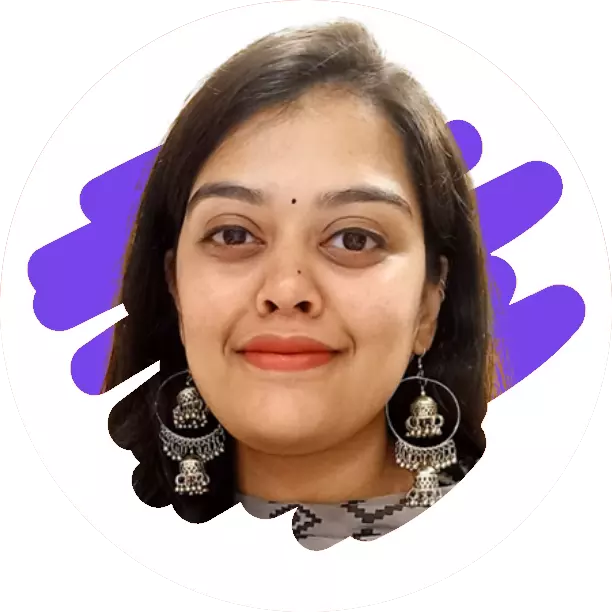On National Press Day: Know Who Termed Media As Fourth Estate & How India Eulogised It Over Years
Writer: Laxmi Mohan Kumar
She is an aspiring journalist in the process of learning and unlearning many things. Always up for discussions on everything from popular culture to politics.
India, 16 Nov 2022 8:25 AM GMT
Editor : Jayali Wavhal |
She writes about gender issues, human interest, and environment.
Creatives : Laxmi Mohan Kumar
She is an aspiring journalist in the process of learning and unlearning many things. Always up for discussions on everything from popular culture to politics.
The term coined by an English statesman and journalist defined the press over the years. On National Press Day, The Logical Indian looks back at the origin of the 'fourth estate' and how it took different forms in contemporary India.
The term "Fourth Estate" or "fourth power" was initially brought in as a form of mockery as well as a reminder of the true role of the press. It was coined, or more appropriately, hurled, by Conservative Anglo-Irish Member of Parliament Edmund Burke as an abuse to the gentlemen of the press and ill-principled scribes who spread scandalous news from the press gallery at the Palace of Westminster. However, over time, the term got eulogised to refer to the press as the fourth pillar of democracy with the capacity to advocate and bring out issues to the public.
Origin And Usage Over The Years
Edmund Burke was a strong critic of several policies and policymakers, particularly that of the British government towards the American colonies, including its taxation policies. He stood as the original exponent of several constitutional conventions, the role of the member of Parliament as a free representative, not a delegate, and so on. He is remembered and celebrated for his persuasive political and social principles that continue to be long and widely held in England.
One such idea that stood the test of time is his mockery of the press as the "fourth estate." Burke coined the term in a 1787 parliamentary debate on the opening up of press reporting of the House of Commons of Great Britain. It derives from the traditional European concept of the three estates of the realm: the clergy, the nobility, and the commoners.
Extending it further with an equivalent "fourth power" meant a separate power altogether that fell aside even from the government's branches of power. According to Wikipedia, in modern usage, Thomas Carlyle wrote of the fourth estate as, "Burke said there were Three Estates in Parliament; but, in the Reporters' Gallery yonder, there sat a Fourth Estate more important far than they all."
From there on, it began to represent the role played by journalists and press media in representing the interests of the people. The term fourth estate also went on to be liberally used by writers to term lawyers, queen's consorts, the proletariat, and many such free agents who act independently. The hallmark of all of it remained the idea that the fourth estate scrutinises power and institutions in the interest of the public.
In the words of Schultz (Reviving the fourth estate,1998), the media served as a form of watchdog that held the other three estates accountable for their actions. The same continued to be proposed by many theorists and academicians such as Kovach and Rosenstiel, who stated that "the fourth estate has to uncover the truth behind the reporting of events and it has to undergo a justifiable and morally ethical way to "fix any leaks" in the supply of information."
Fourth Pillar Of Democracy In India
Freedom of the press in India is an attribute that is legally protected by the Indian Constitution. In spite of this, with every passing World Press Day that celebrates the fourth pillar of democracy, India's press freedom continues to see a drop in the freedom index. As per recent rankings by Reporters Without Borders (RWB), India ranked 150 out of 180 countries in the press freedom index.
The website explained the ranking by saying, "The violence against journalists, the politically partisan media, and the concentration of media ownership all demonstrate that press freedom is in crisis in "the world's largest democracy" since 2014." These rankings were rejected by the chairman of the Press Council of India (PCI), who claimed that the rankings "were based on opinion or perception" and not on statistical data.
The drop in the rankings in the country continues to be linked to the existence of the "sedition law" that encourages self-censorship. A lawyer, Fali Nariman, once said during a press conference in New Delhi, "Freedom after the speech, that is really what freedom of speech is all about." Elaborating on it, he said that an individual is allowed to speak as much as they like in India, but there would be a fellow waiting on the other end to nab you and out you so that they would not be able to speak ever again. This was highlighted even by the RWB, which pointed out that the hate expressed against the differing views of journalists poses a threat to the democratic structure.
For years, whenever observers and audiences lamented the decline of press freedom in the country, there were few defenders who stood by journalistic ethics to produce factual news. This was quite the challenge as right from the '90s, with over 400 media channels, the Fourth Estate was said to have reduced to a competitive business that found a way to sustain itself through the growing Target rating points (TRPs).
Sensationalised content became the new corporate agenda, and broadcast and print media began flooding with advertisements and sponsored content. There were few countable media houses that took the stance of critiquing power holders and authoritative figures. Among those was the New Delhi Television Ltd (NDTV), a national media channel that was long considered a stalwart voice of independent journalism.
So in late August 2022, when news regarding billionaire industrialist Gautam Adani taking over NDTV came about, it started alarms of concern about possible biased content that would favour one of the richest men in Asia who is known to have close ties with the country's prime minister. Talking about such a monopolised media system, intellectuals such as Noam Chomsky had earlier written that it would be fatal to consume news that is bought.
In his book 'Manufacturing Consent: The Political Economy of Mass Media,' he spoke at length about the media manipulation and relationship with the surveillance authority that would create a bubble in which the public is subjected to live within. In a documentary by the same name, Chomsky can be seen explaining that people in power and those who "own the country" would do all that it takes to oppress the press freedom if it attacks them. They would have the power to manipulate grassroots politics for their benefit through the media that they have bought.
An article by the Economist also suggests how the government became creative over time with laws on defamation and sedition. The co-founder of independent news media The Wire, Siddharth Varadarajan, had also stated that "one weapon of choice is spurious defamation cases". Baseless lawsuits, unwarranted raids, and many such related provisions enable power holders to disrupt reporters' work and tie them down in lengthy, and often, years-long legal proceedings.
Freelance And Independent Media Suppressed
The burden of this is often bored by freelancers and independent reporters who lack the legal or financial resources to untangle themselves from the legal bindings. This was observed in the cases filed against Siddique Kappan, a journalist from Kerala, who spent two years in jail for his reportage on the alleged rape and murder of a young Dalit woman.
Yet another case in recent times was that of Mohammed Zubair, the co-founder of fact-checking media AltNews, who was sent to three weeks in pre-trial detention on the basis of an anonymous complaint that claimed Zubair had hurt religious sentiments of the Hindus through a tweet. There are multiple other journalists, such as Fahad Shah, Sajad Gul, and Aasif Sultan, who were locked up on charges of terrorism offences under the Public Safety Act.
However, these independent journalists continue to reflect on the existence of the fourth estate in the country. The voice of independent journalism has been getting bolder and stronger in the face of social media and activism. Despite the rampant arrests of journalists for questioning establishments, people and media persons have often come forward to extend support and resources to ensure that they continue to be protected constitutionally.
Many reports suggest that in India alone, the rise of the voice of independent journalism, especially amidst the youth circles, has created a positive arch. It has proved to stand against the heavy wave of tabloidisation that has managed to sweep off a good share of international and Indian Journalism.
Also Read: Women Journalists Are Not 'Safe', 73% Faced Abuse While Working: Report
 All section
All section















